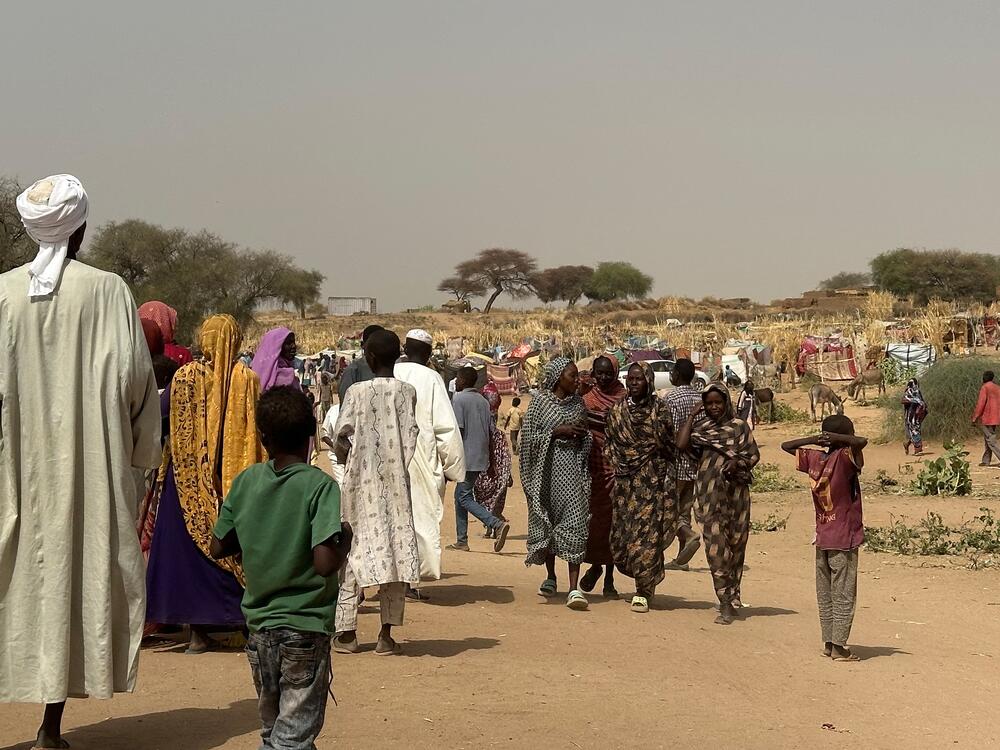Section Branding
Header Content
Darfur: bearing the brunt of over two years of civil war in Sudan
Primary Content
JOHANNESBURG — The food that a United Nations convoy was taking to the besieged Sudanese city of El Fasher would have been the first humanitarian aid desperate families there had received in over a year.
But they never got it.
The 15-truck convoy was on its way to the city in the Darfur region on Monday when it came under attack. Five UN staff were killed, several others injured, and the supplies damaged.
The UN condemned "in the strongest possible terms this horrendous act of violence against humanitarian personnel who literally put their lives at risk in an attempt to reach vulnerable children and families in the famine-impacted areas of Sudan."
"It is devastating that the supplies have not reached the civilians in need," it said in a statement.
It's the latest blow for civilians in Darfur, who are currently bearing the brunt of the brutal two-year civil war between Sudan's army and the paramilitary Rapid Support Forces (RSF).
El Fasher, the capital city of North Darfur, is one of the last areas controlled by the Sudanese army in the remote western region of Sudan, and has been under attack by the RSF since last year. The UN didn't say who was responsible for the attack on the aid convoy, but both warring factions accused the other of using drones in the ambush.
The Sudan conflict has killed tens of thousands, displaced nearly 13 million and created what the UN has called the world's worst humanitarian crisis, with the World Food Program saying almost 25 million people face "acute hunger."
The U.S., UN experts, and the Sudanese army all argue the RSF and allied ethnic-Arab militias have been committing a genocide against Black African ethnic groups in Darfur.
While rights groups have accused both sides of war crimes, including extrajudicial killings and the blocking of humanitarian aid, they have blamed the vast majority of atrocities on the RSF.
In April the RSF attacked the massive ZamZam displacement camp in North Darfur, which was home to about half a million people, killing hundreds.
On Wednesday, Doctors Without Borders, released a new report focused on South Darfur, where it said "pervasive violence, a healthcare system in ruins and an inadequate international response have all combined to push people's coping strategies to their limits."
"People are subject to appalling violence on roads and farmland, and in markets and their own homes," the medical charity said. "Air strikes and drone strikes continue to hit South Darfur and other parts of the country."
This week Human Rights Watch accused the Sudanese armed forces of airstrikes "indiscriminately" bombing civilian populations in South Darfur.
Doctors Without Borders also says sexual violence is widespread in South Darfur, with the organization providing care to 659 women and girls between January 2024 to March 2025. Of those 7 percent were younger than 10 years old, with some as young as five.
Many women and girls are gang-raped. One man in West Darfur told the NGO: "Three months ago there was a little girl of 13 years old who was raped by three men…They caught her and raped her, then they abandoned her in the valley."
Another 17-year-old girl, accounted her own rape to the charity.
"They beat us, and they raped us right there on the road, in public. There were nine RSF men. Seven of them raped me." the teen said. "I wanted to lose my memory after that."

